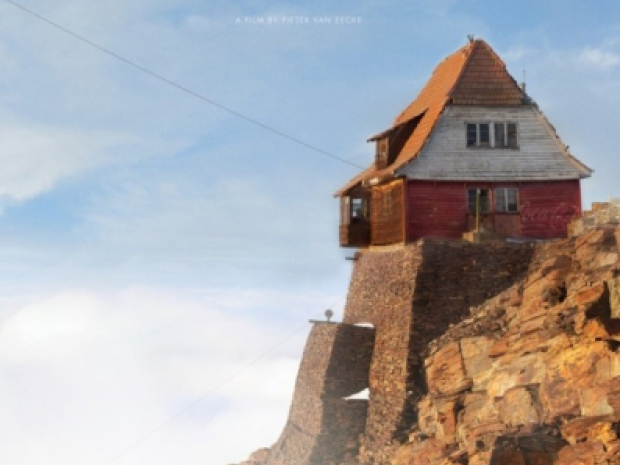Samuel in the Clouds – Addressing climate change at the Flemish Parliament, Brussels
Discussion details

Brussels, 8 November 2016 - Only a few days after the entry into force of the Paris Agreement, the Ciné-ONU film screening of ‘Samuel in the Clouds’ addressed the consequences of climate change and its implications for humans, also matching the ongoing Climate Conference in Marrakech. The event, attended by over 300 people, was a joint collaboration between the Government of Flanders and the United Nations Regional Information Centre (UNRIC), organized at The Flemish Parliament in Brussels.
In a nostalgic way, Pieter Van Eecke, director of the documentary, presents in his documentary the past and present life of Bolivian ski lift operator Samuel. Samuel is exposed to melting glaciers in his ski region and experiences the changes in his environment, constantly hoping to have the old days return. Meanwhile climate scientists depict a snowless future as they analyse data from Samuel’s mountain region and explain him the principles and impact of global warming.
The film screening was followed by a lively discussion and Q&A with Pieter Van Eecke; Victor Dries, Environmental Advisor to the Cabinet of Environment Minister and Vice-President of the Flemish government Liesbeth Homans, and Thierry Lucas, UN Environment’s Ecosystems Management coordinator for Europe. Cristina Gallach, UN Under-Secretary-General for Communications and Public Information, moderated the event.
In order to mitigate the effects of climate change, Thierry Lucas argued that it is essential to start implementing the Paris Agreement and communicate clearly about the concrete actions towards the set goals. At the global level providing incentives, for instance to the private sector to transit to renewable energy is a way to decarbonise. We also have a chance to act at the level of individuals and communities he said: “Each of us can be an ambassador of climate change, we need to change the way we consume, change our behaviour”, he underlined. Each individual can start a movement by convincing others to make a change. He also brought up the topic of climate refugees, presenting the example of Syria where years of consecutive droughts forced 1,5 million farmers to move to already overcrowded cities, thus increasing social instability further.
Victor Dries elaborated: “Global interaction is very important, especially in regards to knowledge sharing. We must act locally and share globally.” He emphasized that developed countries should be a role model to developing economies, leading by example in all sectors. Education and youth empowerment should be a focus: “Education to all of us by all of us, we have to move all actors,” Dries concluded.
Pieter Van Eecke explained that in his view the power of images and movies is key in order to successfully communicate on the effects of climate change to society. “I’ve been worrying about climate change for many years and searching for a way to film it in a human way”, said Pieter Van Eecke, something he managed to do well as manifested by an enthousiastic audience.
During the Q&A, questions circled around the outcome of the US Presidential elections and its potential impact on the Paris Agreement, as well as on renewable energy initiatives in developing countries and the issue of worldwide overpopulation. Cristina Gallach concluded the discussion by referring to the positive momentum of the Paris Agreement and civil society’s contributions to its success. “Although we are at the beginning of a long road, this is a positive moment in history.”
For more detailed background information, find the handout of the documentary here.
To watch the trailer, click here.
A shortened version of this article was also published in the UNEP in Europe newsletter.
Log in with your EU Login account to post or comment on the platform.